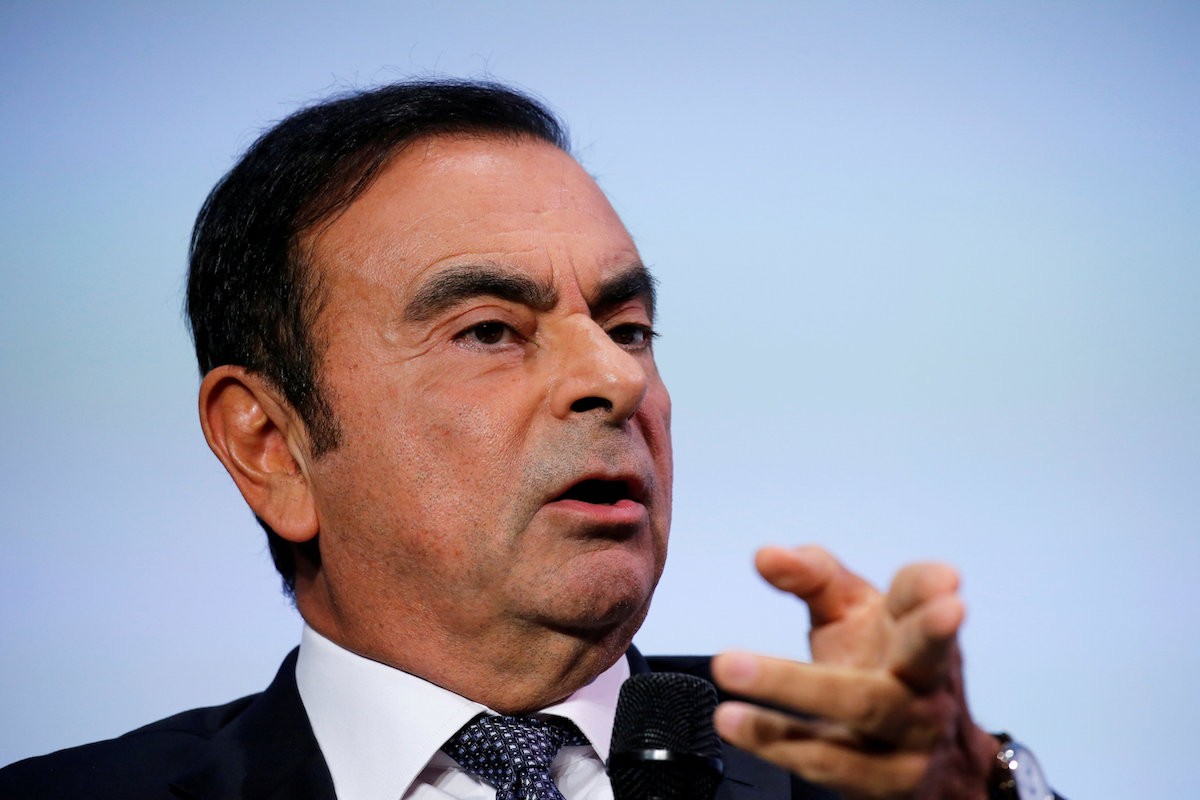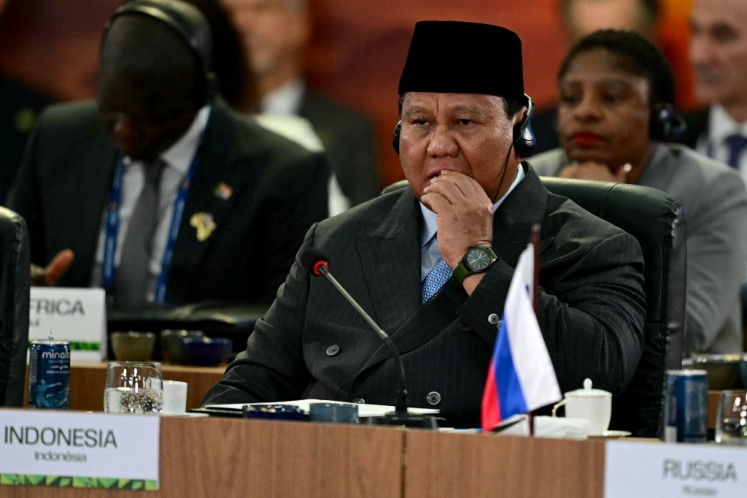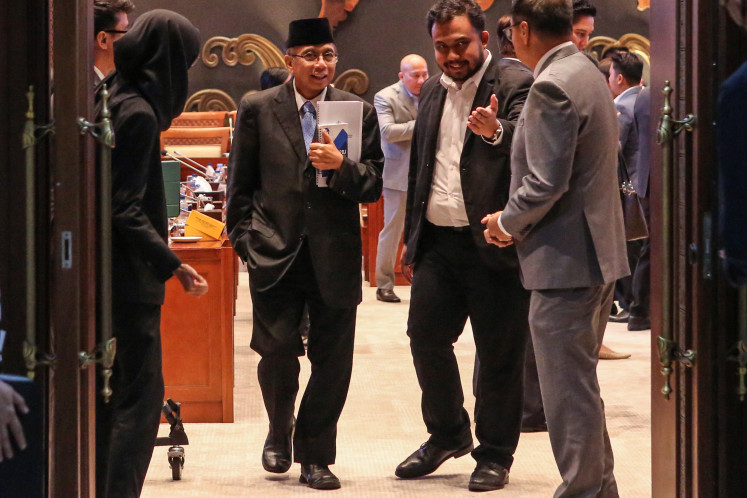Popular Reads
Top Results
Can't find what you're looking for?
View all search resultsPopular Reads
Top Results
Can't find what you're looking for?
View all search resultsGhosn ‘aimed to get half of his pay later’
Change text size
Gift Premium Articles
to Anyone
N
issan Motor Co.’s former chairman, Carlos Ghosn, 64, had received roughly 2 billion yen (US$17.7 million) annually in remuneration from the company before disclosure of the names of executives and their actual pay became mandatory in 2010, according to sources close to the financial scandal.
Although the automaker did not reduce the sum of Ghosn’s pay after the change in law, it only stated it to be about 1 billion yen per year in its securities reports. Ghosn is alleged to have intended to collect the difference between the stated and actual remuneration after he stepped down.
The Financial Instruments and Exchange Law, among other regulations, requires companies to also state future remuneration in reports that would be made the same fiscal year the sum is finalized.
Sources say the special investigation squad of the Tokyo District Public Prosecutors Office arrested Ghosn for allegedly falsifying the reports for a total of 5 billion yen, or roughly 1 billion yen per year over five years.
Ghosn allegedly ordered that his remuneration be reported as less than he actually received in order to avoid criticism over being paid too much.
[RA::Nissan’s Ghosn arrested over financial law violation::
Ghosn and Greg Kelly, 62, Nissan’s former representative director, were arrested on Monday on suspicion of violating the Financial Instruments and Exchange Law.
The two are suspected of conspiring to understate the charismatic leader’s pay by about 5 billion yen in Nissan’s securities reports covering fiscal 2010 to fiscal 2014.
The two also allegedly falsified the reports from fiscal 2015 to fiscal 2017, stating Ghosn’s total pay to be approximately 3 billion yen less than the actual amount.
Since the time of the fiscal 2009 securities report, listed companies have been required to disclose on their securities reports the names and exact annual remuneration of board members whose pay exceeded 100 million yen each. Companies had only been asked to report the total amount of board compensation until then.
According to sources, Ghosn received about 2 billion yen annually for several years before the change in the reporting requirements. During a general shareholders meeting in 2007, Nissan was criticized for what was viewed as excessive executive remuneration — over 2.5 billion yen in total in some cases — compared with Toyota Motor Corp., which paid a total of 1.5 billion yen.
Ghosn allegedly instructed his close aides, including Kelly, to cut down the sum that would be disclosed to about 1 billion yen. Ghosn allegedly decided his annual remuneration would be roughly 2 billion yen even after the change in the law, and that any difference would be paid after he retired from the company.
According to Nissan’s securities reports, the company paid a total of 2.58 billion yen to its executives for fiscal 2008. The total amount of pay to executives fell by about 900 million yen to 1.68 billion yen for fiscal 2009, when the disclosure system was introduced, and it has stayed close to that level since then.
While Ghosn’s pay is suspected of having been understated by roughly 1 billion yen in the securities report for fiscal 2009, the investigation squad chose to arrest him on suspicion of falsifying the reports from fiscal 2010 to fiscal 2014. This was because the investigative authorities acknowledged the statute of limitations of seven years, but also noted the fact that he was staying overseas for a certain period of time, which would affect the statute of limitations.
This article appeared on The Japan News newspaper website, which is a member of Asia News Network and a media partner of The Jakarta Post










